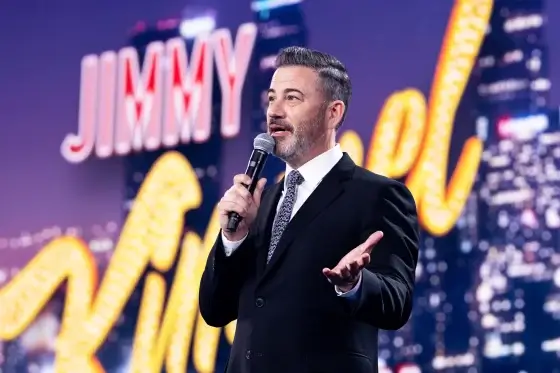Within the past few months, two of late-night television’s most prominent voices, Stephen Colbert and, most recently, Jimmy Kimmel, have faced abrupt endings to their respective shows.
In May, CBS announced that ‘The Late Show with Stephen Colbert’ would come to a close in 2026, after nearly a decade on air. Four months later, ABC suspended ‘Jimmy Kimmel Live!’ indefinitely. In Colbert’s case, CBS claimed declining viewership and financial strain, according to Reuters. However, the cancellation came shortly after Colbert criticized on-air a settlement paid by CBS to President Donald Trump, following his lawsuit against CBS for editing Kamala Harris’s interview, an act he saw as an attempt to influence the election. In Kimmel’s case, the suspension followed moments of political controversy relating to Charlie Kirk’s recent assassination. Kimmel critiqued President Trump’s response to Kirk’s death. In both cases, the networks claimed declining viewership as a cause. However, according to Statista, Colbert’s and Kimmel’s shows have the “biggest audiences in the 11:35 p.m. segment as well as any other time slot.”
For Kimmel, the turning point came across multiple monologues, addressing the recent assassination of conservative commentator Charlie Kirk.
More specifically, on Sept. 15, he said, “The MAGA gang [is] desperately trying to characterize this kid who murdered Charlie Kirk as anything other than one of them, and doing everything they can to score political points from it.”
At the time of the statement, no official law enforcement agency had confirmed any political leanings or motive for the suspect, Tyler Robinson, making Kimmel’s remarks controversial from the jump. His comment(s) were quickly followed by criticism from FCC Chair Brendan Carr, who warned of regulatory consequences. Later, Carr went further to tell right-wing podcaster Benny Johnson, “We can do this the easy way or the hard way,” language many read as a direct threat to networks carrying Kimmel, according to NPR. Carr, who contributed a cha pter to Project 2025 on reshaping the FCC, faced renewed scrutiny after responding to an X user accusing him of following through with the plan by posting a nodding Jack Nicholson GIF, a reply many took as a wink toward the criticism. Major affiliate groups Nexstar and Sinclair threatened to pull Jimmy Kimmel Live! from their ABC stations, according to a report by AP News.
Both companies are pursuing large mergers that require FCC approval, giving the companies the incentive to side with Carr. Disney, for its part, said the suspension was intended to “avoid inflaming a tense situation” after Kirk’s death, calling Kimmel’s remarks “ill-timed and thus insensitive,” Reuters reported.
The incident has sparked a wide-ranging debate on campus about the lines between political opinion, humor, and what is considered an acceptable business risk. “He’s always talked about everything,” said Monmouth nursing major Antonia Agurto. “Now that he’s talking about something personal, why now cancel him? He’s said worse in the past. It’s very divided.”
Music major Julia Gale questioned whether fairness was even a factor, noting that in the modern media landscape, “cancel culture has skyrocketed with social media and the ability and the audience for what you want to say.” Gale went further to say, “Now it’s not cancel culture, it’s delete culture.”
Another student, political science major Lola Salyamov, felt the situation had a chilling effect on political dialogue, admitting, “I just don’t talk politics with my friends because it always leads to arguments.”
President Donald Trump praised Kimmel’s suspension as “great news for America,” while critics across the political spectrum warned of a dangerous precedent being set. Senator Ted Cruz, who has historically disliked Jimmy Kimmel and was glad of his suspension, cautioned, “If the government gets in the business of saying what you, the media, have said, we’re going to ban you from the airwaves if you don’t say what we like — that will end up bad for conservatives.”
Consumer backlash added another layer, as Disney reportedly saw a wave of subscription cancellations to Disney+ in protest, according to NBC.
On Sept. 22, just six days after the suspension began, ABC announced that Kimmel would return to the air. Disney executives described the incident as a moment of “ill-timed” commentary but reaffirmed their support for the show. Many households will still not have Jimmy Kimmel Live! available though, as both affiliate companies stated they will replace the late-night show with news programming, according to NBC. Together with Colbert’s looming departure, the Kimmel saga raises broader questions about whether late-night political comedy can withstand the combined pressures of commercial demands and political scrutiny.



